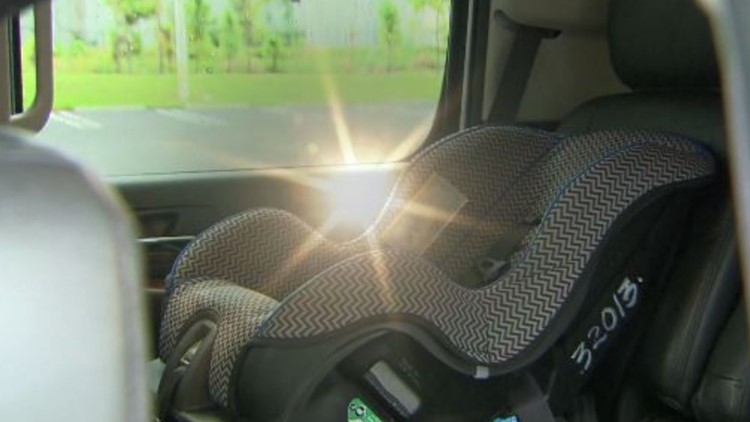A 1-year-old baby was found dead after being left in a parked car outside of the Good Samaritan Hospital in Puyallup, Washington on Wednesday. In a separate incident, a baby girl died Sunday after her parents left her in their car for hours while they attended a church service in Florida.
Captain Ryan Portmann of the Puyallup Police Department told CBS News the Washington incident was a "terrible mistake."
The child — who was being fostered by a hospital social worker — had been left in the car while the woman worked a 9-hour shift. She had dropped her other children off before going to work, and forgot she had the baby in the car.
The foster mother arrived at work shortly after 8 a.m., and returned to the car at around 5 p.m. to find the child unresponsive.
She rushed the baby into the hospital, but the child could not be revived. At the time, the internal temperature of the car was around 110 degrees — possibly higher, according to Portmann — with the outdoor temperature that day between 70 and 75 degrees.
"You have a woman who gives her life to helping people, and to have this happen — it's just a tragic, tragic incident," said Portmann.
Detectives at the Puyallup Police Department are working with the medical examiner's office to verify a cause of death, though it is presumed to be heat-related. The foster mother and family are fully cooperating with police.
Following the conclusion of the investigation, the police department will refer their report to Pierce County prosecutors to determine if charges are appropriate.
"This can happen to anyone," said Portmann, adding that families should "come up with systems or processes to make sure that you're always aware you've got a child in the car…especially as we go into the warm months."
In the more recent incident in Florida, Palm Bay police officers found the unresponsive 11-month-old infant inside a vehicle on Babcock Street on Sunday at around 1 p.m., officials said. They determined she'd been inside the car for about three hours while her parents attended a church service.
The baby was taken to a hospital where she was pronounced deceased.
"This is an unfortunate incident, and our condolences and prayers go out to the family," Palm Bay Police Chief Mario Augello said.
The Florida incident is the sixth hot car death this year, according to KidsandCars.org, a nonprofit that provides information on hot car deaths. Four of the deaths happened in May.
On average, 38 children under the age of 15 die each year from heatstroke after being left in a car, according to the National Safety Council.
Temperatures in Palm Bay, where the 11-month-old girl died, were in the 70s on Sunday, but an outside temperature of 70 degrees can result in a temperature above 100 degrees in a vehicle, according to the National Highway Traffic Safety Administration (NHTSA). Children are likely to be especially impacted because their body temperatures rise three to five times faster than those of adults.
"When a child is left in a vehicle, that child's temperature can rise quickly — and the situation can quickly become dangerous," according to the NHTSA.
The Centers for Disease Control and Prevention (CDC) adds that temperatures inside a car can rise by almost 20 degrees within 10 minutes, even with a window left cracked open.
Preventing hot car deaths
The NHTSA and the CDC have shared safety tips on how to prevent hot car deaths. The agencies advise:
- Never leave a child in a vehicle unattended for any length of time, even if the windows are rolled down or the vehicle is parked in the shade.
- Check your entire vehicle before you lock the door and walk away.
- Keep a personal item, such as a purse, in the backseat so that you'll check the rest of your vehicle before you leave and lock the car. Drivers can also write a note or place a stuffed animal in the front passenger's seat as a visual reminder of a child in the backseat.
- If you see an unattended child alone in a locked car, call 911.
- Keep your car locked and store your keys in an area your child cannot reach so they can't go inside a vehicle by themselves.



